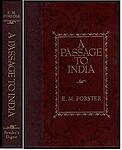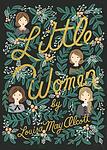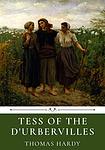The Greatest "Social & Cultural Fiction" Books of All Time
Click to learn how this list is calculated.
This list represents a comprehensive and trusted collection of the greatest books. Developed through a specialized algorithm, it brings together 300 'best of' book lists to form a definitive guide to the world's most acclaimed books. For those interested in how these books are chosen, additional details can be found on the rankings page.
Genres
Social & Cultural Fiction is a literary category that encompasses novels and stories that delve into the complexities of society and culture, exploring themes such as class, race, gender, and identity within specific social contexts. These narratives often provide a lens through which readers can examine the intricacies of human relationships and the impact of cultural norms and societal structures on individuals and communities. By offering a fictional yet reflective portrayal of real-world social dynamics, this genre invites readers to gain a deeper understanding of the diverse experiences that shape our world. Authors in this category frequently use their characters and settings to comment on contemporary issues, challenge prevailing ideologies, and provoke thought about the possibility of social change, making Social & Cultural Fiction a powerful tool for empathy and a mirror for the ever-evolving human condition.
Countries
Date Range
Reading Statistics
Click the button below to see how many of these books you've read!
Download
If you're interested in downloading this list as a CSV file for use in a spreadsheet application, you can easily do so by clicking the button below. Please note that to ensure a manageable file size and faster download, the CSV will include details for only the first 500 books.
Download-
26. Their Eyes Were Watching God by Zora Neale Hurston
This novel follows the life of Janie Crawford, a young African-American woman, in the early 20th century. She embarks on a journey through three marriages and self-discovery while challenging the societal norms of her time. The narrative explores her struggle for personal freedom, fulfillment, and identity against the backdrop of racism and gender expectations, ultimately emphasizing the importance of independence and personal growth.
-
27. Things Fall Apart by Chinua Achebe
This novel explores the life of Okonkwo, a respected warrior in the Umuofia clan of the Igbo tribe in Nigeria during the late 1800s. Okonkwo's world is disrupted by the arrival of European missionaries and the subsequent clash of cultures. The story examines the effects of colonialism on African societies, the clash between tradition and change, and the struggle between individual and society. Despite his efforts to resist the changes, Okonkwo's life, like his society, falls apart.
-
28. The Color Purple by Alice Walker
Set in the early 20th century, the novel is an epistolary tale of a young African-American woman named Celie, living in the South. She faces constant abuse and hardship, first from her father and then from her husband. The story unfolds through her letters written to God and her sister Nettie, revealing her emotional journey from oppression to self-discovery and independence, aided by her relationships with strong women around her. The narrative explores themes of racism, sexism, domestic violence, and the power of sisterhood and love.
-
29. A Passage to India by E. M. Forster
The novel takes place in British-ruled India, where the cultural divide between the British and the Indians is explored. The story focuses on the experiences of an Indian Muslim, Dr. Aziz, and his interactions with an English woman, Miss Quested, and her elderly friend, Mrs. Moore. After an expedition to the Marabar Caves, Miss Quested accuses Dr. Aziz of assault, leading to a trial that deepens the racial tensions and prejudices between the colonizers and the colonized. The novel is a critique of British imperialism and a study of the cultural and racial misunderstandings and ill-will between the British and the Indian people.
-
30. Absalom, Absalom! by William Faulkner
This novel is a complex narrative about Thomas Sutpen, a poor white man who rises to power in the South, aiming to create a dynasty that would rival the old aristocratic families. However, his ambitions are thwarted by his own flawed decisions and the overarching racial and societal tensions of the era. The story is not told in a linear fashion but rather through a series of interconnected flashbacks and narratives, offering different perspectives on the same events. The book explores themes of family, class, race, and the destructive power of obsession.
-
31. Little Women by Louisa May Alcott
This classic novel follows the lives of the four March sisters - Meg, Jo, Beth, and Amy - as they navigate the challenges and joys of adolescence and adulthood in 19th century New England. As they grow, they grapple with issues of poverty, gender roles, love, and personal identity, each in her own unique way. The story is a testament to the power of family, sisterhood, and female resilience in a time of societal constraints.
-
32. As I Lay Dying by William Faulkner
The narrative unfolds through the eyes of 15 different characters over 59 chapters. It is the story of the death of Addie Bundren and her poor, rural family's quest and motivations—noble or selfish—to honor her wish to be buried in her hometown of Jefferson, Mississippi. As the Bundren family undertakes a journey to fulfill Addie's last wish, they face many hardships and personal revelations. The novel explores themes of existentialism, death, and the nature of family relationships.
-
33. A Portrait of the Artist as a Young Man by James Joyce
This novel is a semi-autobiographical account of a young man's intellectual and artistic development in late 19th-century Ireland. The protagonist struggles with issues of identity, faith, and nationality, ultimately rejecting the traditional values of his Catholic upbringing to pursue his own path as an artist. The book is renowned for its innovative narrative style and its exploration of themes such as individuality, freedom, and the nature of art.
-
34. Native Son by Richard Wright
This novel tells the story of Bigger Thomas, a young African-American man living in Chicago's South Side during the 1930s. Bigger's life takes a tragic turn when he accidentally kills a young white woman. The incident leads to his arrest and trial, revealing the deep-seated racial prejudices and injustices prevalent in American society at the time. The narrative explores themes of poverty, systemic racism, fear, and the effects of oppression.
-
35. Vanity Fair by William Makepeace Thackeray
This classic novel follows the lives of two contrasting women, the cunning and ruthless Becky Sharp and the sweet and naive Amelia Sedley, against the backdrop of English society during the Napoleonic Wars. The book is a satirical exploration of the obsession with wealth, status, and social climbing, and the moral bankruptcy that can result from such pursuits. The narrative weaves an intricate tale of love, betrayal, and redemption, exposing the vanity and hypocrisy of high society.
-
36. Tess of the d'Urbervilles by Thomas Hardy
This is a tragic tale of a young woman named Tess who comes from a poor family in rural England. Tess is sent to work for a wealthy family, where she is seduced by a man who abandons her after she becomes pregnant. The baby dies, and Tess is ostracized by her community. She falls in love with a kind man, but when she confesses her past, he rejects her. Desperate and heartbroken, Tess murders her former seducer and is eventually captured and executed. The novel explores themes of fate, injustice, and the oppressive sexual morals of its time.
-
37. The Leopard by Giuseppe Tomasi di Lampedusa
"The Leopard" is a historical novel set in 19th-century Sicily, during the time of the Italian unification or Risorgimento. It centers on an aging, aristocratic protagonist who is coming to terms with the decline of his class and the rise of a new social order. The narrative weaves together personal drama with the larger political and social upheaval of the time, providing a rich, nuanced portrait of a society in transition. Despite his resistance to change, the protagonist ultimately recognizes its inevitability and the futility of his efforts to preserve the old ways.
-
38. One Flew Over the Cuckoo's Nest by Ken Kesey
Set in a psychiatric hospital in Oregon, the novel is narrated by a half-Native American patient known as Chief Bromden, who pretends to be deaf and mute. The story follows the arrival of a new patient, a boisterous, rebellious man who challenges the oppressive and dehumanizing system of the hospital, particularly the tyrannical Nurse Ratched. The book explores themes of individuality, rebellion, and the misuse of power, ultimately leading to a tragic conclusion.
-
39. The Golden Notebook by Doris Lessing
The novel centers around a woman named Anna Wulf, a writer who keeps four notebooks, each representing a different aspect of her life: her experiences in Africa, her current life in London, a novel she is writing, and her personal experiences. As Anna's mental state deteriorates, she attempts to unify her fragmented self in a fifth notebook, the golden notebook. The novel explores themes of mental breakdown, communism, the changing role of women, and the fear of nuclear war.
-
40. The Idiot by Fyodor Dostoevsky
The book follows the story of a kind-hearted and naive protagonist who returns to Russia from a Swiss sanatorium, where he was treated for a severe epileptic condition. Despite his pure intentions, he gets entangled in a web of love, greed, and manipulation, leading to tragic consequences. The novel explores themes of innocence, love, sacrifice, and societal expectations, offering a profound critique of Russian society during the 19th century.
-
41. Wide Sargasso Sea by Jean Rhys
This novel is a postcolonial prequel to "Jane Eyre," exploring the life of Mr. Rochester's mad wife, Bertha. Set in Jamaica during the 1830s, it follows the story of Antoinette Cosway, a white Creole heiress, from her youth in the Caribbean to her unhappy marriage and move to England. Caught in a society that both rejects and exoticizes her, Antoinette is ultimately driven into madness by her oppressive husband and the haunting legacy of colonialism.
-
42. Under the Volcano by Malcolm Lowry
Set in Mexico on the Day of the Dead in 1938, the novel follows the last day in the life of Geoffrey Firmin, a British consul with a severe alcohol addiction. Through his interactions with his estranged wife and half-brother, the book explores themes of despair, betrayal, and the destructive power of addiction, against the backdrop of political and social unrest. The impending eruption of the nearby volcano serves as a metaphor for Firmin's deteriorating mental state and the looming world war.
-
43. Journey to the End of The Night by Louis-Ferdinand Céline
The novel is a semi-autobiographical work that explores the harsh realities of life through the cynical and disillusioned eyes of the protagonist. The narrative follows his experiences from the trenches of World War I, through the African jungles, to the streets of America and the slums of Paris, showcasing the horrors of war, colonialism, and the dark side of human nature. The protagonist's journey is marked by his struggle with despair, loneliness, and the absurdity of existence, offering a bleak yet profound commentary on the human condition.
-
44. Sons and Lovers by D. H. Lawrence
"Sons and Lovers" is a semi-autobiographical novel that explores the complex relationships between a miner's wife, her husband, and their two sons. The story focuses on the intense emotional and psychological bonds between the mother and her sons, as well as the struggles they face in their romantic relationships due to their deep attachment to their mother. The novel delves into themes of class, love, sexuality, and the oedipal complex, presenting a vivid picture of working-class life in early 20th century England.
-
45. The Heart Is A Lonely Hunter by Carson McCullers
The novel explores the spiritual isolation of misfits and outcasts in a small town of the U.S. South. Its protagonist is a deaf-mute who becomes the confidant for various troubled souls including a black physician, a bitter labor activist, a lonely young girl, and a struggling café owner. Each pours their heart out to him, but he remains unable to respond, reflecting the deep human need for connection and understanding.
-
46. Doctor Zhivago by Boris Pasternak
Set against the tumultuous backdrop of the Russian Revolution, the book follows the life of a physician and poet, Yuri Zhivago, as he navigates the political and social upheaval of the early 20th century. Torn between his love for two women, his wife Tonya and his passionate mistress Lara, Zhivago's personal struggles mirror the larger societal changes occurring around him. The novel explores themes of love, war, and the human spirit, offering a poignant and complex portrait of life during a time of revolutionary change.
-
47. Rabbit, Run by John Updike
The novel follows the life of a 26-year-old former high school basketball star, who is dissatisfied with his current life. He impulsively leaves his wife and son and embarks on a journey in the hopes of finding a more meaningful existence. His decisions, however, lead to a series of tragic events that impact the lives of those around him. This mid-20th-century novel explores themes of freedom, responsibility, and the tragic consequences of impulsive decisions.
-
48. Fathers and Sons by Ivan Turgenev
This classic novel explores the generational divide and ideological clash in 19th century Russia. The story focuses on the relationship between a liberal father and his nihilistic son, who challenges the traditional values and beliefs of his elders. As they navigate their personal differences, the novel delves into broader themes of progress, love, and societal change, offering a poignant commentary on the tension between old and new ideas in a rapidly changing world.
-
49. Song of Solomon by Toni Morrison
The novel explores the life of an African-American man, Macon "Milkman" Dead III, from birth to adulthood. Set against the backdrop of racial tension in the mid-20th century United States, it delves into his journey of self-discovery and understanding his heritage. As Macon embarks on a literal and figurative journey south to reconnect with his roots, he encounters various characters that help him understand his family history and the power of community. The narrative is deeply rooted in African-American folklore and mythology, offering a profound commentary on identity, personal freedom, and the destructive power of racism.
-
50. The Man Without Qualities by Robert Musil
"The Man Without Qualities" is a satirical novel set in Vienna during the last days of the Austro-Hungarian Empire. It follows the life of Ulrich, a thirty-two-year-old mathematician, who is in search of a sense of life and reality but is caught up in the societal changes and political chaos of his time. The book explores themes of existentialism, morality, and the search for meaning in a rapidly changing world.
Reading Statistics
Click the button below to see how many of these books you've read!
Download
If you're interested in downloading this list as a CSV file for use in a spreadsheet application, you can easily do so by clicking the button below. Please note that to ensure a manageable file size and faster download, the CSV will include details for only the first 500 books.
Download























